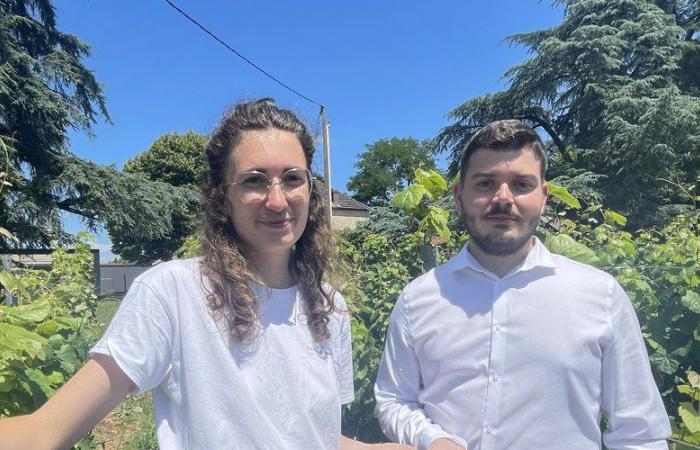
the essential
The Clos Triguedina estate and the company M2i collaborated on the creation of a staple releasing pheromones preventing the reproduction of grape worms. A biodegradable and more practical alternative for wine growers.
This is a great innovation that will help winegrowers deal with a well-known pest in the field: the grape worm. On the Clos Triguedina estate in Vire-sur-Lot, the Baldès family has been experimenting with the “lobésia pro clip” for two years now. This small five-centimeter clip diffuses pheromones on the plot and will sexually disorient the male pests and therefore prevent any reproduction, thanks to the technique of sexual confusion. Winegrowers are regularly confronted with these pests: the butterflies will lay eggs and the worms will degrade the grapes. The fruit will rot and the winegrower can thus lose the entire bunch. With this new alternative, all you have to do is clip these clips onto the wires holding the vines, also an aid for trellising.
DDM – Pauline Frayssou
“It’s a natural solution, with an identical odor to the butterfly. There is no toxicity for biodiversity. We are not going to poison the pest, only disorient it,” explains Johann Fournil, spokesperson for M2i, the company behind this innovation. Concretely, the butterfly will be unable to locate the female and therefore mating will be impossible. M2i thus uses the sexual confusion technique, already used for certain products, and promotes biocontrol to protect the plant. The staple is made of linen fiber and decomposes on its own over time. “There are 1,200 staples per hectare. It limits the use of other chemicals and saves time for winegrowers,” adds Johann Fournil.
Read also :
“I have never treated so much since this year”, the humid climate of recent days worries winegrowers
The Baldès family tested the product on their vineyard
“We are in the testing phase on part of the vineyard. We use them for their ease of application. We apply them in May at the time of lifting and they remain effective until the harvest. This allows us to avoid treatments and “use of phytosanitary products”, explains Juliette Baldès, the new manager of the Triguedina closed estate. A prolific alternative for the young winemaker who hopes to obtain “committed winemaker” certification and therefore limits the use of chemicals on these lands.
DDM – Pauline Frayssou
The Domaine du Clos Triguedina and M2i collaborated together on the development of this product. Previously, grape worms proliferated in the vineyard, thanks in particular to the climate of the department. Of the 75 hectares of the vineyard, the experiment was spread over 5 hectares. “We are satisfied with the results, we did not have any attack on the areas where the staples were installed.” The Lot company M2i estimates that the “lobésia pro clip” is 90% effective on the 1,200 hectares tested. An ecological alternative which will undoubtedly make life easier for winegrowers.





